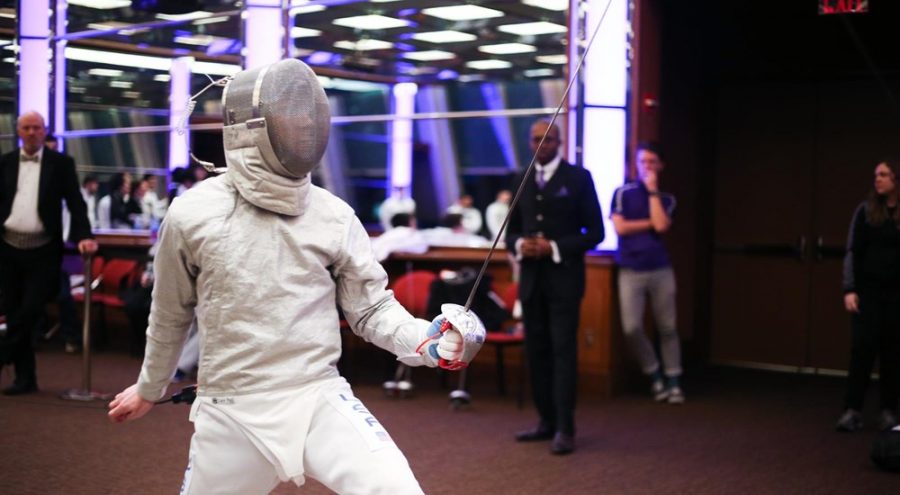Most people only think about fencing every four years during the summer Olympics. However, at NYU there are 60 students that partake in the sport, competing across the country during the academic year.
Fencing, compared to most sports, requires a heightened level of mental focus, according to team member and Rory Meyers sophomore Chloe Chen.
“There’s like a million things going on through your mind while you’re doing it,” Chen said. “Just you thinking about what you’re going to do next and what your opponent is going to do next. It really works your brain, so after the bout you’re physically and mentally tired.”
In fencing, there are three different weapons: foil, epee and sabre. Each fencer has their own weapon that they specialize in and each weapon has different target areas.
In the epee, the full body is the target — from the top of one’s head to the tips of their feet. A lot of fencers start off their careers with the foil, which is similar to the epee in appearance. While it is also a point weapon, the target area is just the torso. Finally, the sabre uses the entire length of the blade, with a target area from the waist up.
In addition to competing for NYU, many Violets also have national and international commitments, team member and Stern senior Eric Zobel said. From 1960 to 1996, NYU sent 28 fencers to the Olympics.
“There’s actually a whole other season that is happening outside the college world,” Zobel said. “There are a couple people on the team that have a realistic shot of going to the Olympics, so they go off to national and international events.”
Additionally, the fencing team competes against teams in all three divisions of play — one week it will be up against Harvard, another Division I team, and the next it may be facing a club team.
“We all fence each other, like we all fence all DI, DII, DIII because there aren’t that many fencing schools,” Chen said. “So, it is kind of nice because you can fence many different schools with different dynamics.”
Because of their close proximity to other top fencing universities, the Violets face tougher competition on their journey to NCAAs. In order to qualify for nationals, the team first has to compete in regionals, which means that it will face other prestigious teams in the Northeast like Columbia University.
“Other teams around the nation respect NYU and that is definitely something we’ve earned through the past couple of years,” Zobel said.
A version of this article appears in the Monday, Oct. 28, 2019, print edition. Email Rebecca Choi at [email protected].






















































































































































